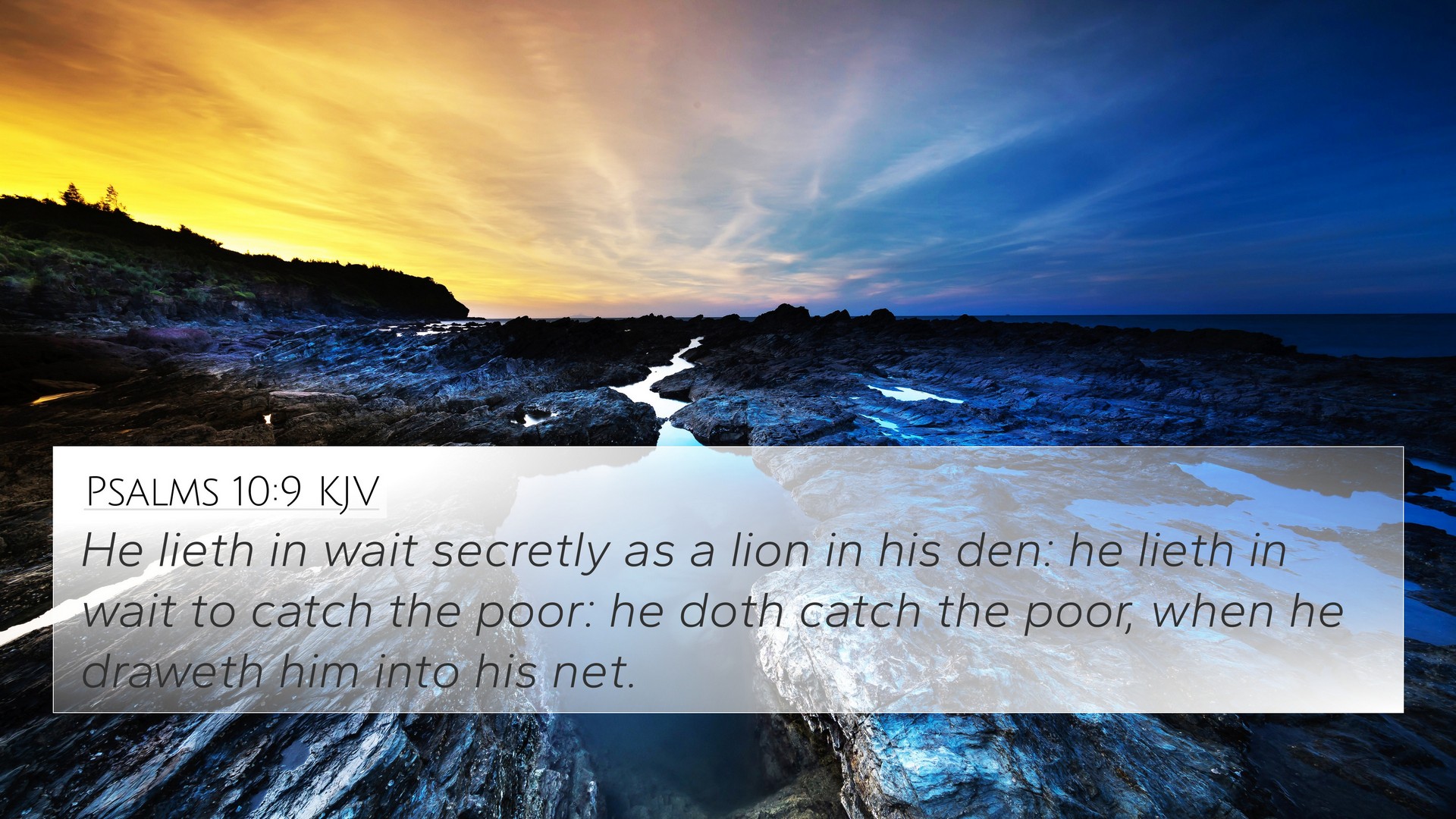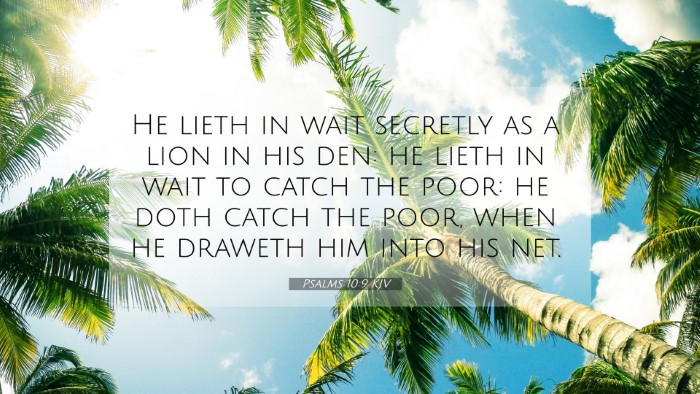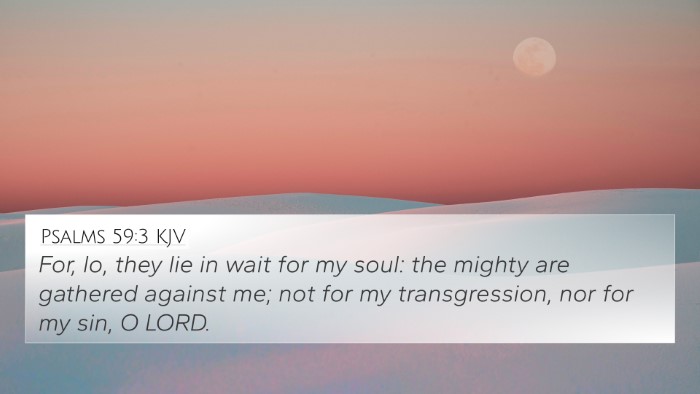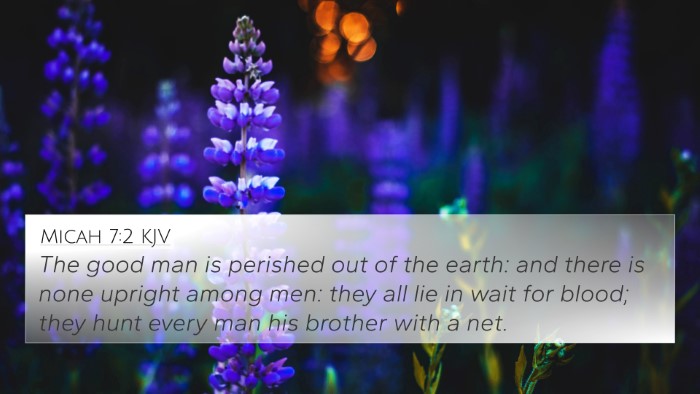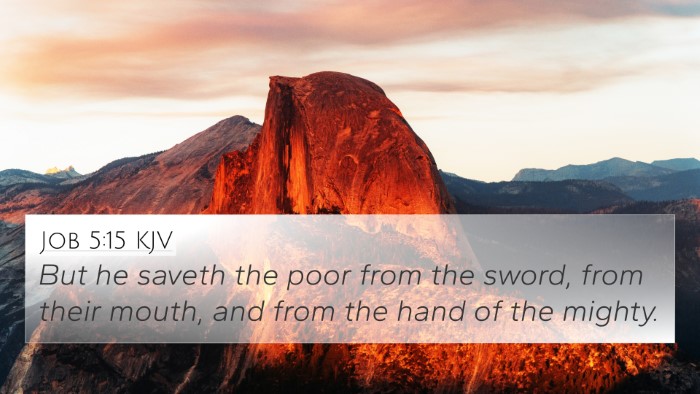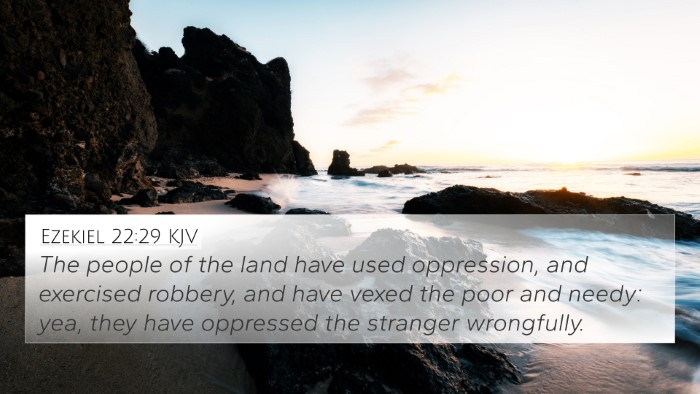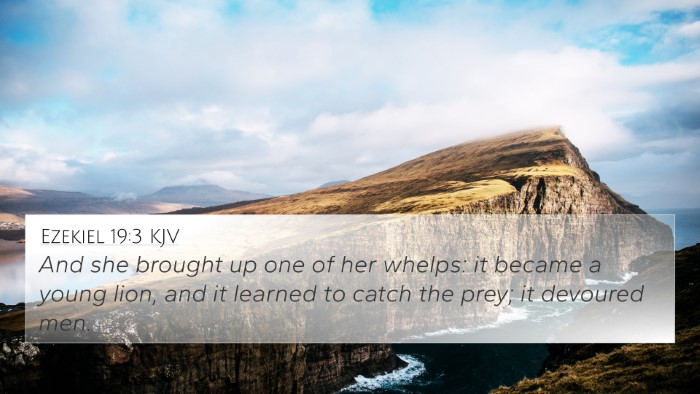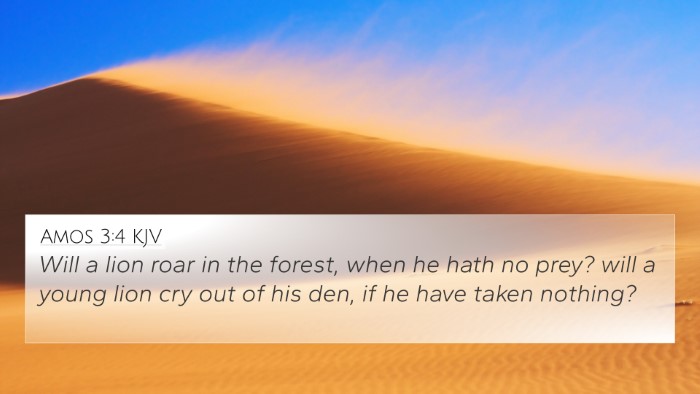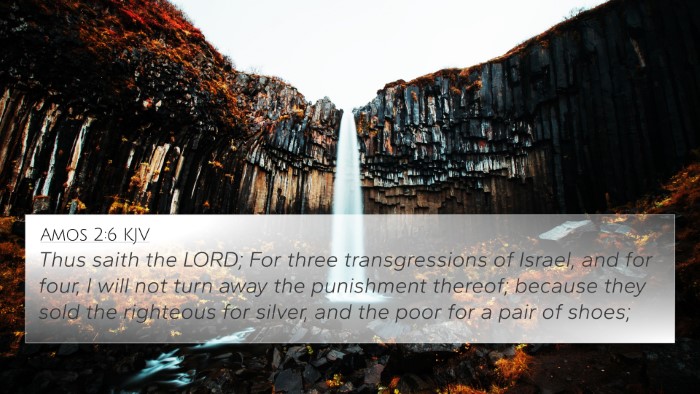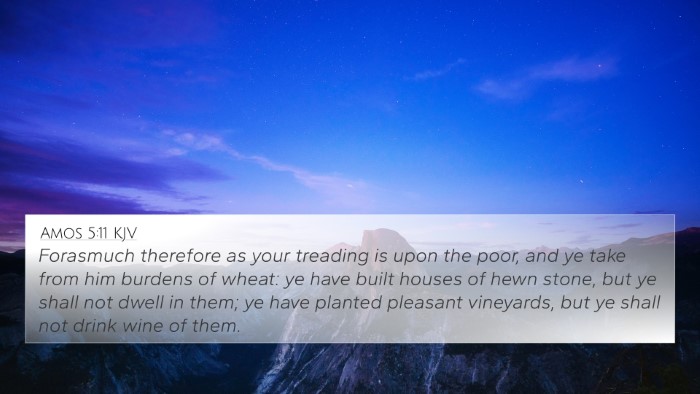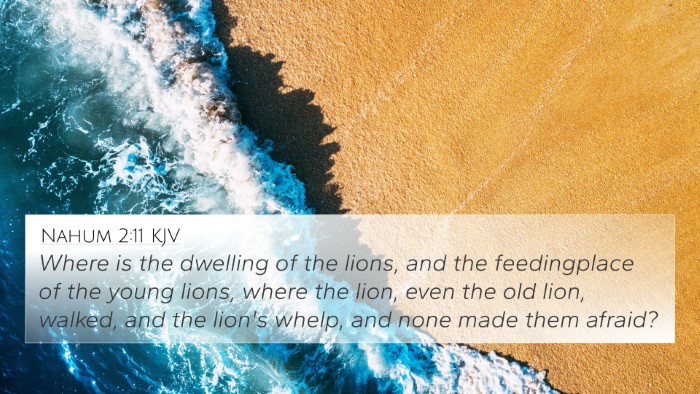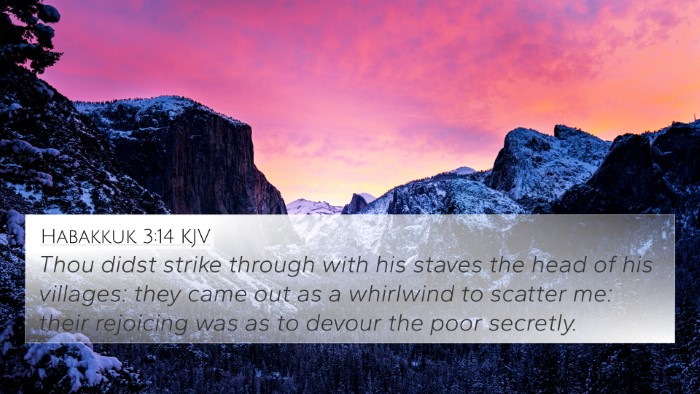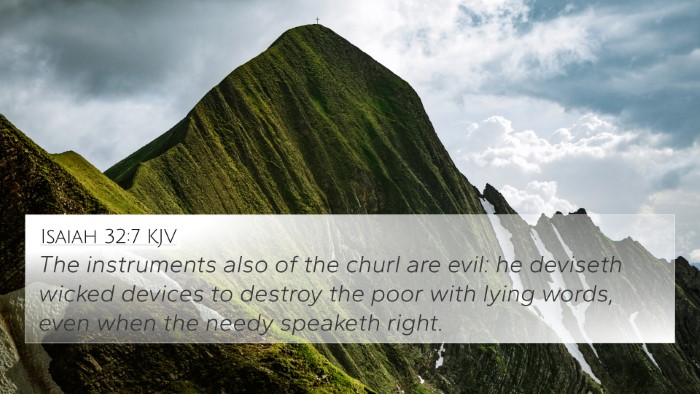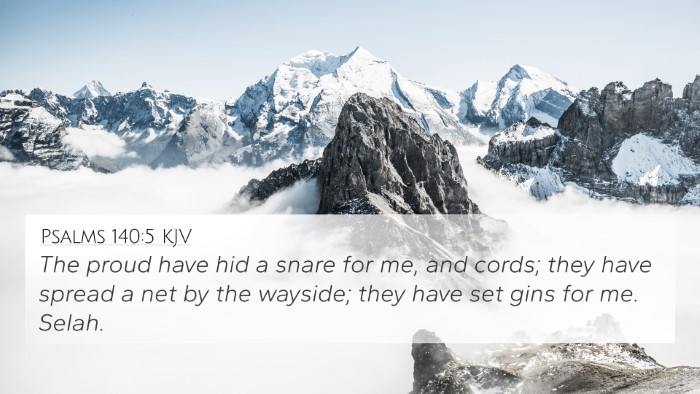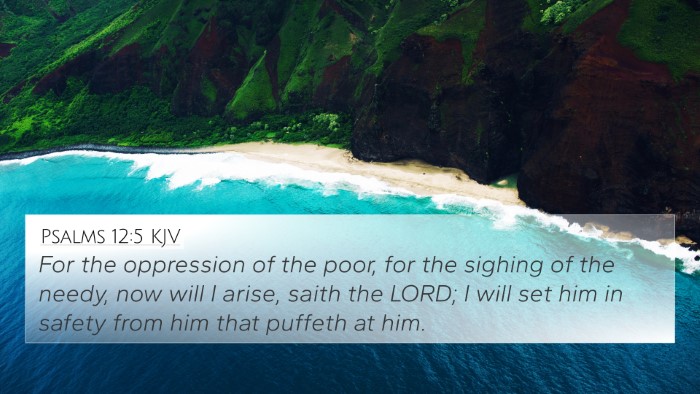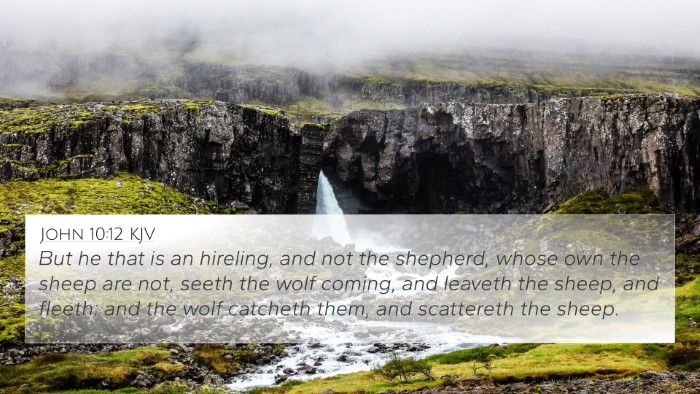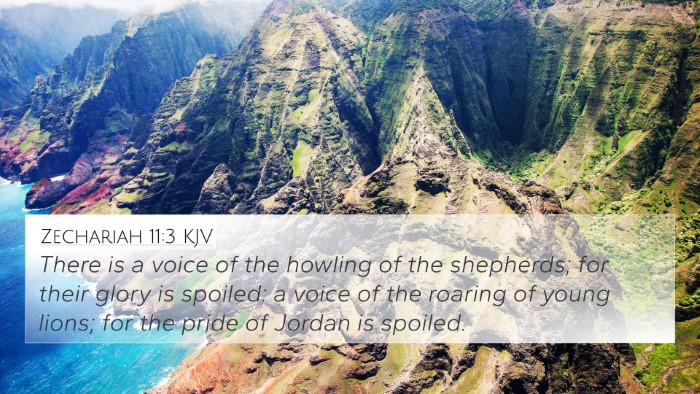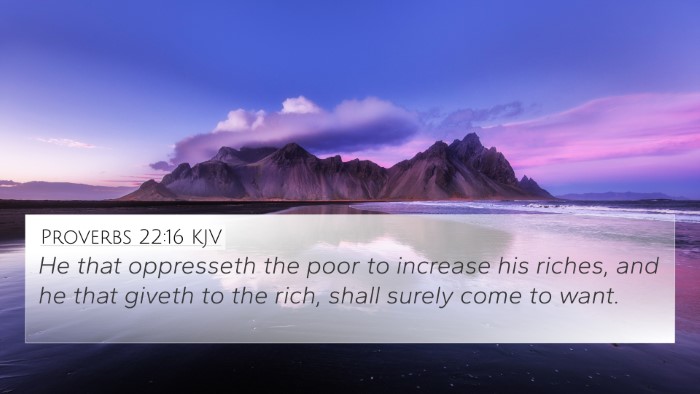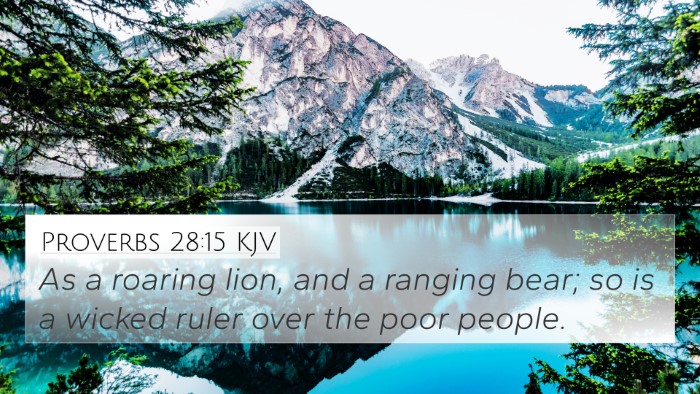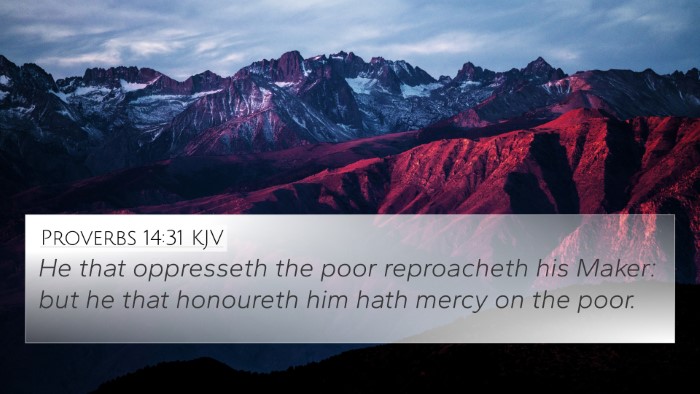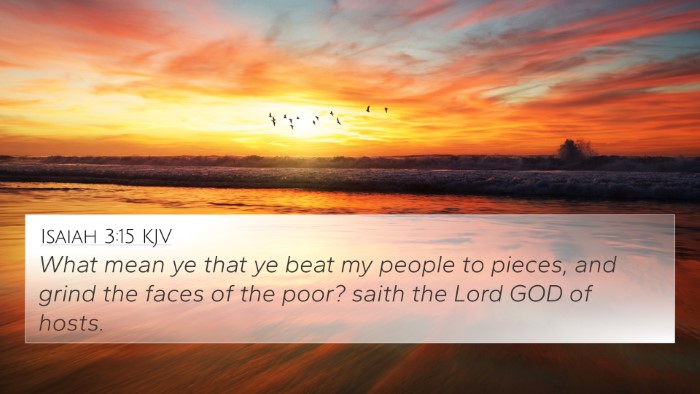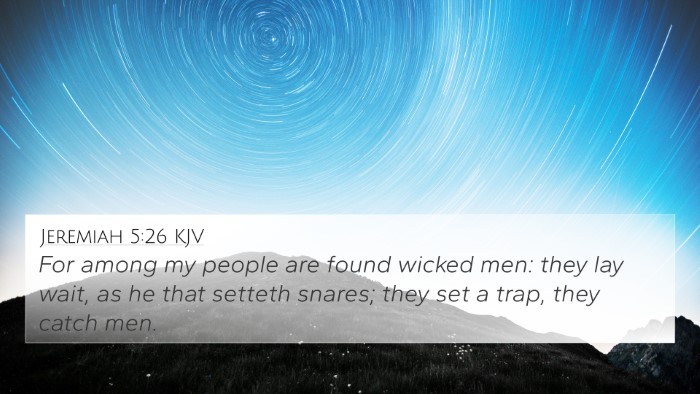Understanding Psalms 10:9
Psalms 10:9 states, "He lies in wait secretly as a lion in his den; he lies in wait to catch the poor: he doth catch the poor, when he draweth him into his net." This verse offers deep insights into the themes of injustice, oppression, and divine awareness. Let’s explore its meanings by combining insights from several public domain commentaries.
Verse Context and Overall Meaning
The psalmist portrays God’s observation of the wicked, who prey on the vulnerable and innocent. The imagery of a lion in its den emphasizes the stealth and cunning of those who exploit the poor, showcasing the spiritual battle between good and evil.
Matthew Henry's Commentary
Matthew Henry emphasizes the violence of the wicked who harm the weak. He points out that the verse indicates not only the wickedness of the oppressors but also the vulnerability of the innocent. He notes that God ultimately sees the injustice and will respond.
Albert Barnes' Notes
Albert Barnes focuses on the metaphor of the lion lying in wait, demonstrating the malicious intent of the oppressor. He explains this as a warning of how easily the poor can fall into traps set by the wicked. The verse brings to light the scheming nature of evil and the need for vigilance among the faithful.
Adam Clarke’s Commentary
Adam Clarke expounds upon the themes of danger and entrapment. He highlights the belief that the metaphor reflects how the poor are often ensnared by deception. Clarke also points to divine justice, expressing hope that God will intervene and rescue those who are caught in such nets of injustice.
Key Themes
- Injustice and Oppression: The verse illustrates the plight of the poor in a world filled with powerful oppressors.
- The Nature of Evil: It provides insight into how evil operates subtly, often hidden until it is too late.
- Divine Awareness: God is aware of the struggles faced by the innocent, reminding believers that justice will eventually prevail.
- Hope Amidst Despair: Even in darkness, the psalmist conveys a message of hope that God will provide rescue.
Cross-References for Psalms 10:9
To deepen the understanding of Psalms 10:9, here are several Bible verses that connect thematically:
- Psalm 7:15: "He made a pit, and digged it, and is fallen into the ditch which he made." - Illustrates the self-destructive nature of those who plot against the innocent.
- Psalm 9:15: "The heathen are sunk down in the pit that they made: in the net which they hid is their own foot taken." - Reinforces the idea of the wicked falling into their own traps.
- Proverbs 22:22-23: "Rob not the poor, because he is poor: neither oppress the afflicted in the gate: for the Lord will plead their cause." - Highlights God’s defense of the vulnerable.
- Isaiah 29:20-21: "For the terrible one is brought to nought, and the scornful one is consumed, and all that watch for iniquity are cut off." - Affirms the downfall of oppressors by divine intervention.
- Jeremiah 5:26-28: "For among my people are found wicked men: they lay wait, as he that setteth snares; they set a trap, they catch men." - Acknowledges the presence of wickedness in society.
- Matthew 7:15: "Beware of false prophets, which come to you in sheep's clothing, but inwardly they are ravening wolves." - Similar to the imagery of deception present in Psalms 10:9.
- 1 Peter 5:8: "Be sober, be vigilant; because your adversary the devil, as a roaring lion, walketh about, seeking whom he may devour." - Draws parallels to the predator-prey relationship displayed in the psalm.
- James 5:4: "Behold, the hire of the laborers who have reaped down your fields, which is of you kept back by fraud, crieth: and the cries of them which have reaped are entered into the ears of the Lord of Sabaoth." - Reflects God's concern for the mistreated laborers.
- Luke 4:18: "The Spirit of the Lord is upon me, because he hath anointed me to preach the gospel to the poor; he hath sent me to heal the brokenhearted, to preach deliverance to the captives …” - Affirming Christ’s mission to lift the oppressed.
- Revelation 6:10: "And they cried with a loud voice, saying, How long, O Lord, holy and true, dost thou not judge and avenge our blood on them that dwell on the earth?" - Echoes the longing for justice that resonates through the psalm.
Exploring Connections Through Cross-Referencing
Analyzing Psalms 10:9 in conjunction with these cross-references allows for a comparative Bible verse analysis that deepens our understanding of justice, the plight of the poor, and God’s ultimate sovereignty. Employing tools for Bible cross-referencing can enrich one’s study, providing a comprehensive view of how individual verses complement and contrast with each other.
In this light, the verse draws connections between Old and New Testament narratives, from ancient injustices to the teachings of Christ, emphasizing that themes of oppression and divine protection are timeless and universal across scriptural contexts. As students of the Bible, we can seek out these linkages to develop a fuller theological understanding.
The Importance of Thematic Connections
Thematic Bible verse connections allow believers to see the broader narrative of Scripture. By understanding verses like Psalms 10:9 in light of those that discuss divine justice and protection of the vulnerable, we can form inter-Biblical dialogues that articulate God’s character and His promises to humanity.
By cross-referencing Biblical texts, one can also draw parallels to significant themes within the Gospels and the Pauline Epistles. For example, Paul's letters often address societal inequalities and provide instruction for believers to care for the poor and marginalized, echoing the sentiments present in Psalms 10:9.
Conclusion
In conclusion, Psalms 10:9 serves as both a warning and a message of hope for those caught in the snares of injustice. By engaging with this text and its cross-references, one can deepen their knowledge and amplify their understanding of the Bible's overarching themes. The faithful are encouraged not to overlook the plight of the poor but to remember that God sees all injustices, and there will ultimately be redress for those who suffer.
